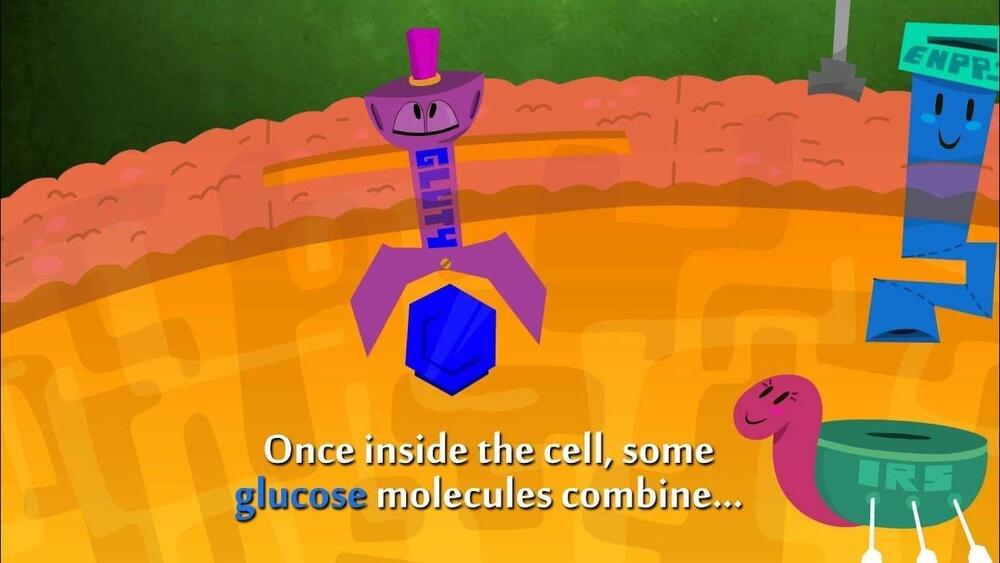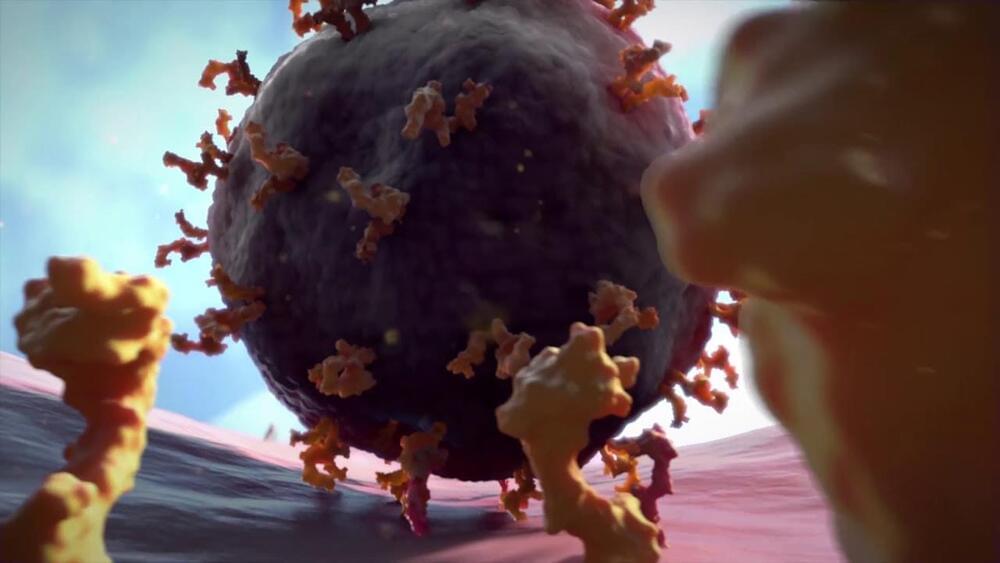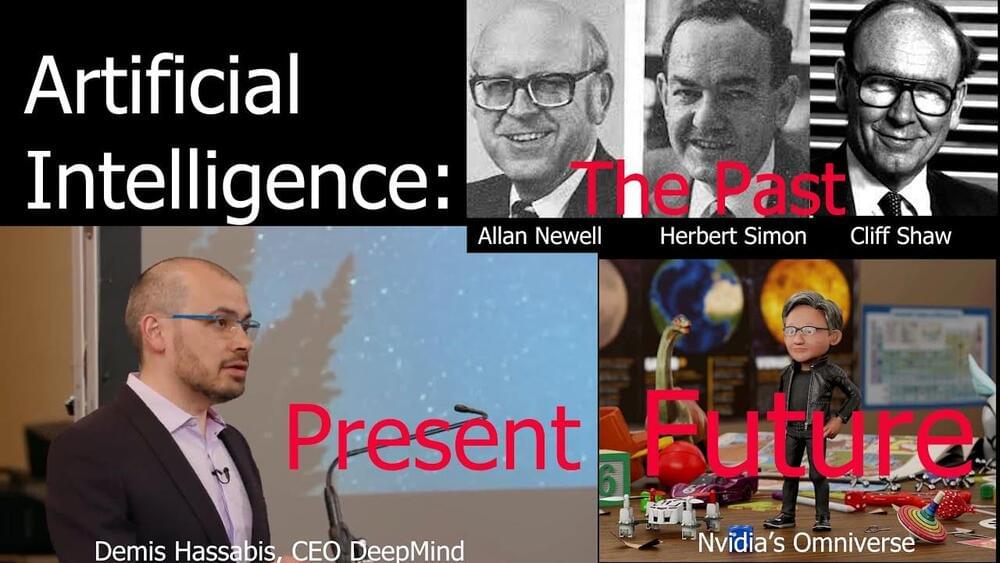Written by Paulo César Naoum and Alia F. M. Naoum.
A São José do Rio Preto’s Science and Technology Academy video.
www.ciencianews.com.br.

Written by Paulo César Naoum and Alia F. M. Naoum.
A São José do Rio Preto’s Science and Technology Academy video.
www.ciencianews.com.br.

https://youtube.com/watch?v=jkNxmTrrZSk
“Like a lock and key” — this is the description of how viruses can get into our cells. Viruses use special proteins on their surface to enter cells. They do this because they need our cells to reproduce. But viruses can only enter certain cells. They use proteins on their surface that act like keys to unlock human cell receptors to invade and infect cells.
Play a Kahoot! trivia game based on this animation: http://www.vaccinemakers.org/trivia.
Heart failure is often identified only when the heart has already deteriorated. This is in large part because the cause is unknown for about 70% of people who experience heart failure.
Researchers at The Hospital for Sick Children (SickKids) have discovered that one of the earliest signs of heart failure is a change in how the heart produces energy, with findings offering a potential way to preempt heart failure before the heart begins to deteriorate.
Led by Dr. Paul Delgado-Olguín, a scientist in the Translational Medicine program, the research may also help to explain the diversity of causes underlying heart failure.
ChatGPT has passed the gold-standard exam required to practice medicine in the US — amid rising concerns AI could put white-collar workers out of jobs.
The artificial intelligence program scored between 52.4 and 75 percent across the three-part Medical Licensing Exam (USMLE). Each year’s passing threshold is around 60 percent.
Researchers from tech company AnsibleHealth who did the study said: ‘Reaching the passing score for this notoriously difficult expert exam, and doing so without any human reinforcement, marks a notable milestone in clinical AI maturation.’

Dr. Craig Kaplan discusses Artificial Intelligence — the past, present, and future. He explains how the history of AI, in particular the evolution of machine learning, holds the key to understanding the future of AI. Dr. Kaplan believes we are on an inexorable path towards Artificial General Intelligence (AGI) which is both an existential threat to humanity AND an unprecedented opportunity to solve climate change, povery, disease and other challenges. He explains the likely paths that will lead to AGI and what all of us can do NOW to increase the chances of a positive future.
Chapters.
0:00 Intro.
0:22 Overiew & summary.
0:45 Antecedents of AI
1:15 1956: Birth of the field / Dartmouth conference.
1:33 1956: The Logic Theorist.
1:58 1986: Backprogation algorithm.
2:26 2016: SuperIntelligent AI / Alpha Go.
2:51 Lessons from the past.
3:59 Today’s “Idiot Savant” AI
4:45 Narrow vs. General AI (AGI)
5:15 Deep Mind’s Alpha Zero.
6:19 Demis Hassabis on Alpha Fold.
6:47 Alpha Fold’s amazing performance.
8:03 OpenAI’s ChatGPT
9:16 OpenAI’s DALL-E2
9:50 The future of AI
10:00 AGI is not a tool.
10:30 AGI: Intelligent entity.
10:48 Humans will not be in control.
11:16 The alignment problem.
11:45 Alignment problem is unsolved!
12:45 Likely paths to AGI
13:00 Augmented Reality path to AGI
13:26 Metaverse / Omniverse path to AGI
14:20 AGI: Threat AND Opportunity.
15:10 Get educated — books.
15:48 Get educated — videos.
16:20 Raise awareness.
16:44 How to influence values of AGI
17:52 No guarantees, we must do what we can.
18:47 AGI will learn our values.
19:30 Wrap up / contact info.
Continue reading “Artificial Intelligence: Past, Present, and Future” »
Researchers in the US developed a new energy-based benchmark for quantum advantage and used it to demonstrate noisy intermediate-scale quantum (NISQ) computers that use several orders of magnitude less energy than the world’s most powerful supercomputer. Quantum computing is a branch of computer science that focuses on the development of technologies based on quantum theory principles.
Quantum computing solves problems that are too complex for classical computing by utilizing the unique properties of quantum physics. The question of whether a quantum computer can perform calculations beyond the reach of even the most powerful conventional supercomputer is becoming increasingly relevant as quantum computers become larger and more reliable. This ability, dubbed “quantum supremacy,” marks the transition of quantum computers from scientific curiosity to useful devices. Scientists predict that Quantum computing is better than supercomputers as it performs tasks a million times faster. Quantum computers can handle complex calculations easily because they are built based on quantum principles that go beyond classical physics.
Quantum computers and supercomputers are extremely powerful machines used for complex calculations, problem solving, and data analysis. While both have the potential to revolutionize computing technology, they have significant speed and capability differences. In 2019, Google’s quantum computer performed a calculation that would take the world’s most powerful computer 10,000 years to complete. It is the seed for the world’s first fully functional quantum computer, which will be capable of producing better medicines, developing smarter artificial intelligence, and solving cosmic mysteries. Theoretical physicist John Preskill proposed a formulation of quantum supremacy, or the superiority of quantum computers, in 2012. He dubbed it the moment when quantum computers can perform tasks that ordinary computers cannot. To quickly crunch large amounts of data and achieve a single result, supercomputers employ a traditional computing approach with multiple processors.
Israeli scientists have developed a substance that overcomes antibiotic resistance by “pricking bacteria to death,” researchers at Ben Gurion University told the Times of Israel on Friday, in a breakthrough that could help combat a major threat to global health.
The substance contains “nano needles” which have a lethal effect on bacteria, and will be developed into topical creams and antibacterial coatings for surfaces, the scientists said, noting that it has shown 90% effectiveness in killing antibiotic-resistant bacteria in lab conditions.
When bacteria stop being affected by antibiotics, it is known as antibiotic resistance, and these pathogens are sometimes colloquially called superbugs.
Electric buses could help solve the problem. Today Bhattacharya is the CEO and co-founder of BasiGo, a mobility startup racing to electrify the city’s buses. The company is not alone. Swedish-Kenyan electric vehicle manufacturer Roam also has its eyes set on Nairobi’s mass transport sector. Both are rolling out fleets of buses this year that could mark the start of a new chapter for city’s famous matatu culture.
During the early days of the coronavirus pandemic in Nairobi, Kenya, something improbable happened: a mountain appeared. To curb the transmission of the virus, authorities called on the city’s thousands of private bus operators to cease trading. “Within three days, the air completely cleared,” recalls entrepreneur Jit Bhattacharya. “You could see Mount Kenya … crystal clear,” some 90 miles away.
Bhattacharya also saw an opportunity. Kenya produces 90% of its electricity from renewable sources – mostly geothermal and hydropower – and has surplus grid capacity, yet it imports nearly all its petroleum fuels. What if clean energy could be channeled into the transport sector? Maybe it could help the city clean up its act. Maybe Mount Kenya could become a permanent feature for Nairobi once more.
Continue reading “Electric buses are driving a silent revolution in Nairobi” »
The official body charged with virus classification has released four new principles that bring order to the viral world. This provides a unified framework that will enable all viruses to be classified, something vitally needed as genome technologies continue to discover millions of new virus species.
Since the ancient civilizations of Greece and Egypt, humans have attempted to classify life on Earth by putting organisms into related groups to understand life and infer relationships.
This classification of life, or taxonomy, took a giant step forward in the 18th century when Swedish botanist Carl Linnaeus established a hierarchical classification system that grouped organisms based on common characteristics. Significantly, he developed a Latin naming system that described each organism by group (genera) and specific name (species). Higher ranks brought related genera together into families, families into orders and so on through classes, phyla and kingdoms.
